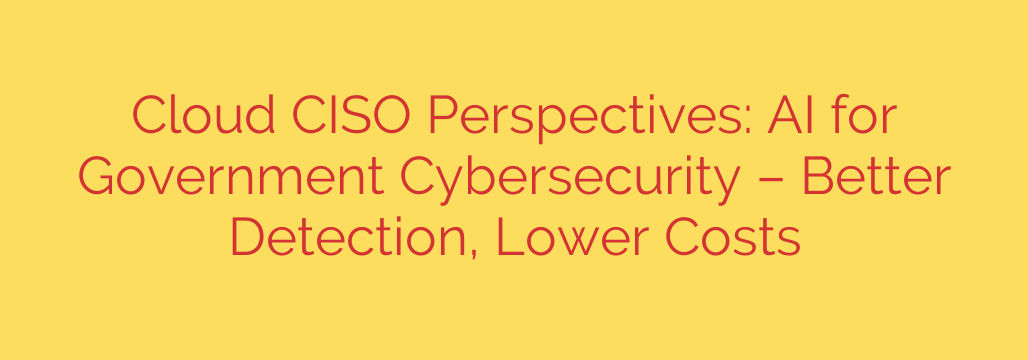
Government entities face increasingly sophisticated cyber threats that pose significant risks to national security, public services, and sensitive data. Strengthening cybersecurity defenses is paramount, and artificial intelligence (AI) is emerging as a powerful tool to address these challenges effectively.
AI offers transformative potential for government cybersecurity operations, primarily by enhancing the ability to detect threats and reduce overall costs. Traditional security systems often struggle with the sheer volume and complexity of modern attacks. AI-driven platforms can analyze massive datasets in real-time, identifying subtle patterns and anomalies that human analysts or signature-based systems might miss. This leads to faster and more accurate threat identification, allowing security teams to respond proactively rather than reactively.
Beyond improved detection, AI contributes significantly to operational efficiency. By automating routine tasks such as sifting through logs, prioritizing alerts, and even initiating initial incident response actions, AI frees up valuable human resources. This automation not only speeds up security processes but also helps mitigate the shortage of skilled cybersecurity professionals. The result is a more streamlined and cost-effective security posture, reducing the overhead associated with managing complex defense systems and responding to frequent incidents.
Specific applications of AI in government cybersecurity include predictive threat intelligence, where AI analyzes historical data and global threat landscapes to forecast potential attack vectors; malware analysis, where AI can rapidly identify and classify new and evolving malicious software; and behavioral monitoring, which detects unusual activity within networks and systems indicative of a compromise.
While the benefits are substantial, adopting AI in government requires careful consideration of factors like data privacy, the need for skilled personnel to manage and interpret AI systems, and ensuring the transparency and explainability of AI decisions. However, the potential for significantly enhancing security outcomes and achieving greater cost efficiency makes AI an essential component for building resilient and future-proof government cybersecurity defenses against the ever-evolving digital threat landscape. Leveraging AI strategically is key to protecting critical infrastructure and public trust in the digital age.
Source: https://cloud.google.com/blog/products/identity-security/cloud-ciso-perspectives-how-governments-can-use-AI-improve-threat-detection-reduce-cost/








